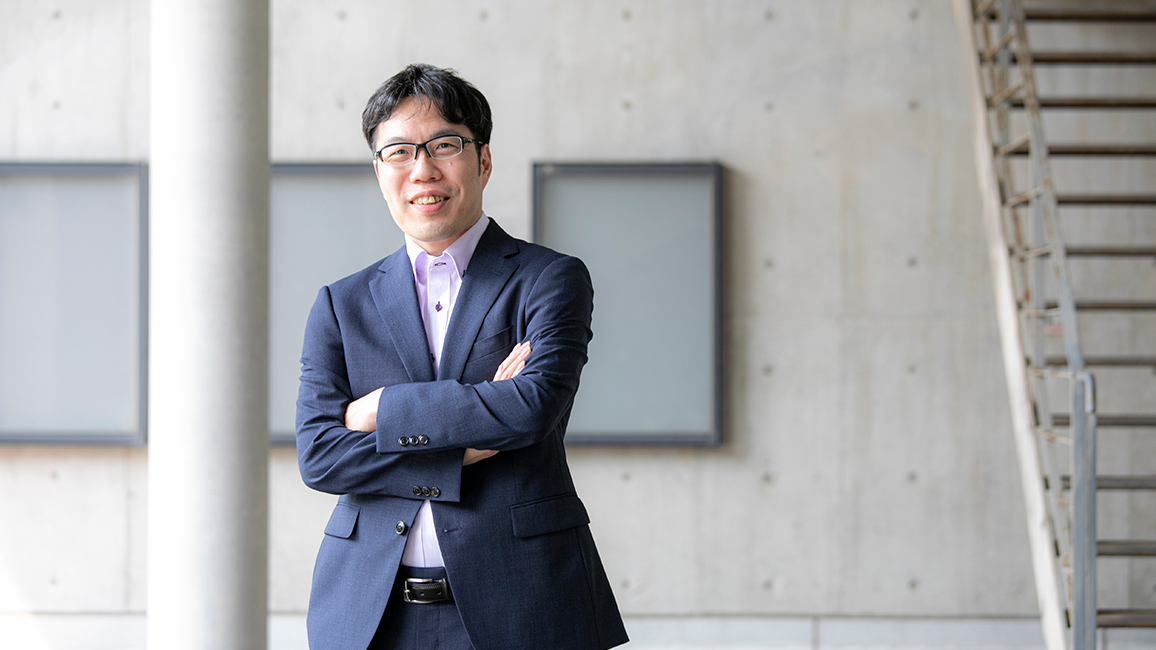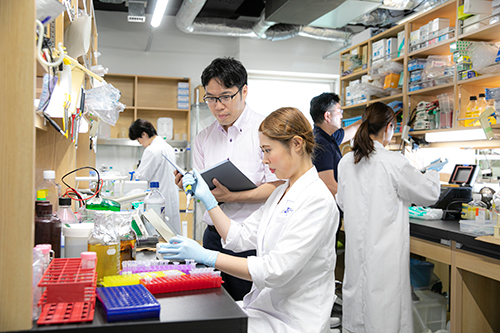- HOME
- Research at RCAST
- Visit to Laboratories
- Osawa Laboratory
Osawa Laboratory

Unique perspective leading to cancer treatment
New territory will emerge from steady efforts
Dr. Tsuyoshi Osawa’s Lab conducts cancer research from a unique perspective: Nutri-Omics, which integrates multi-layer omics of cancer cells in the nutritional prospective. Cancer cells acquire malignancy when deprived of nutrients and oxygen. His research is focused on identification of the mechanism and development of novel cancer treatments.
Why do cancer cells become malignant under extreme environment?
Cancer cells become malignant in the extreme environment such as hypoxia, nutrient deprivation and acidic pH, which enhances cell proliferation, metastasis, and invasion. This malignant tumor progression is believed to be triggered, at least in part, by metabolites in cancer cells. We try to identify the metabolites contributing to the malignant progression of cancer cells and analyze their functions.
We also study the effect of nutrient deprivation on survival and malignant progression of cancer cells. Cancer cells can adapt to deprivation of any one of the three major nutrients: carbohydrates, lipids or amino acids. What happens when they are deprived of combinations of those nutrients? Our aim is to identify the metabolites and survival mechanism of cancer cells to develop novel cancer treatments.
Encounter with two researchers that led to cancer research
Encounter with two great researchers led me to cancer research. First is Sir Tim Hunt, under whom I studied while I was in the UK. He was awarded the 2001 Nobel Prize in Physiology or Medicine for discovery of a key regulator of the cellular cycle. He was very kind to me when I was having a biological research problems during my Ph.D. Second is Dr. Masabumi Shibuya, a leader in the field of vascular biology of cancer cells. I studied under him at Institute of Medical Science, University of Tokyo, after I had returned to Japan. He taught me the very basics of research and the poise of a researcher.
My cancer research started with studying why anti-cancer drugs lose their efficacy. Cancer cells that acquire resistance to anti-cancer drugs are known to become more malignant. As we studied the mechanism, we reached a hypothesis that cancer cells become more malignant in environments lacking nutrition and oxygen, which has evolved to the current theme.
Leading-edge is created by steady efforts
Life science has become an integrated science. In particular, wet biological experiments and dry informatics analyses form integration of data and life sciences. Our lab focuses on the wet lab experiments, but we conduct our research in close cooperation with bioinformatics labs for information analyses. We also engage in a number of joint research projects with companies, which expose our members to wider perspectives through daily works.
We believe environment plays an important role in conducting unique studies. Although our main focus is on experiments, analyzing data from experiments and generating new concepts and ideas from them are just as important. Our laboratory is designed to create light and airy environment like a cafe to encourage thinking in a relaxed atmosphere. Spacious interior boasts a sound system rare for university labs.
When I started as a researcher under Prof. Shibuya, my goal was to have papers published in leading journals. Seeing my impatience, Dr. Shibuya advised me that “important thing is to steadily accumulate researches that are original even if they are small, and to pioneer a new territory.” Ambition and aspiration will drive advancement, but a new territory will only emerge by taking one step at a time. I hope to conduct research that will lead to new treatments with a team of individuals interested in basic research in the area of molecular biology, cell biology and oncology, who can work together with persistence and perseverance.




